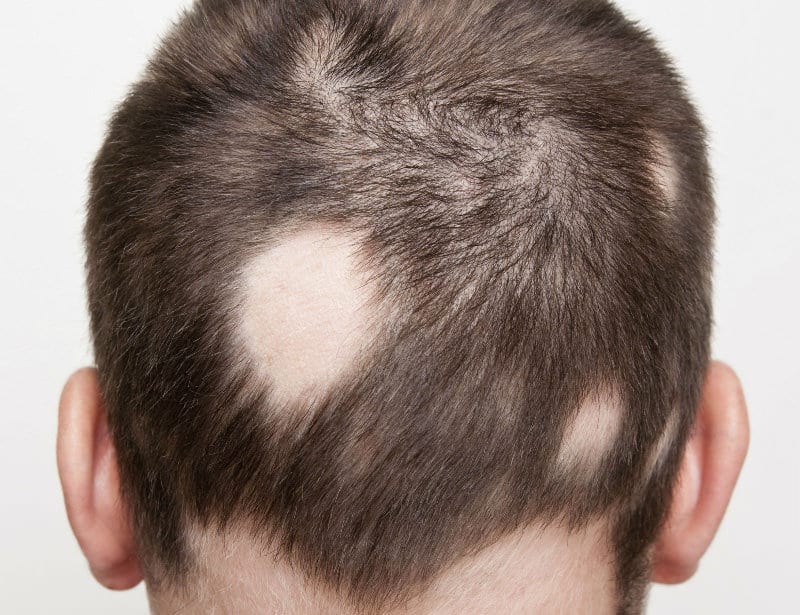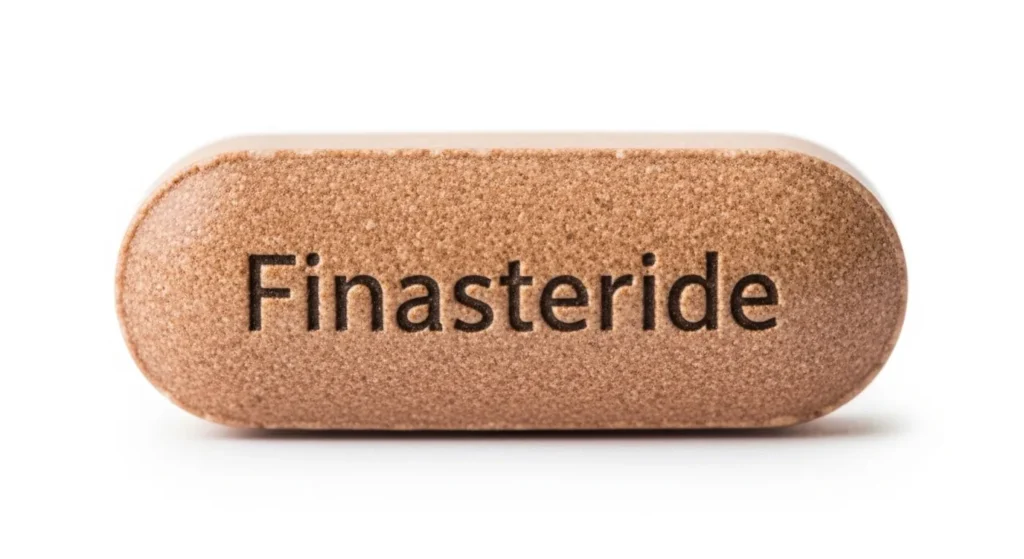Are you wondering does enclomiphene cause hair loss? As more men turn to this medication for testosterone support and fertility treatment, concerns about hair thinning and shedding are growing.
In this medically reviewed guide, we break down the scientific evidence, explore real user experiences, and share expert-backed tips to help you manage any risks to your hair. If you’re on enclomiphene or considering it, this article will help you make an informed, confident choice.
What Is Enclomiphene and Why Is It Used?

Enclomiphene is a selective estrogen receptor modulator (SERM) that stimulates natural testosterone production. Unlike traditional testosterone replacement therapy (TRT), enclomiphene encourages your body to maintain its hormonal balance.
Mechanism of Action
It works by blocking estrogen receptors in the hypothalamus, leading to an increase in luteinizing hormone (LH) and follicle-stimulating hormone (FSH)—both of which signal the testes to produce testosterone.
Common Uses
- Treating male hypogonadism (low testosterone)
- Addressing male infertility
- Used as a Clomid (clomiphene) alternative with fewer estrogenic side effects
FDA Status and Clinical Relevance
Though enclomiphene is not yet FDA-approved as a standalone product, it has been studied extensively and is often prescribed off-label by hormone specialists.
Does Enclomiphene Cause Hair Loss?
Scientific Evidence and Research Findings
Current clinical studies on enclomiphene do not list hair loss as a direct side effect. However, since it affects hormone levels, particularly testosterone and indirectly dihydrotestosterone (DHT), some users may notice shedding or increased hair thinning, especially if predisposed to androgenic alopecia.
Reported Side Effects – Is Hair Loss Among Them?
Common side effects include:
- Headache
- Nausea
- Mood changes
- Visual disturbances
Hair loss is not commonly reported in trials, but some anecdotal cases from forums and users suggest temporary shedding, especially during hormonal fluctuations.
User Experiences from Forums and Medical Reviews
Some men on Reddit and bodybuilding forums claim they’ve noticed hair thinning after starting enclomiphene. However, it’s often unclear whether the hair loss is due to the drug itself or:
- A genetic predisposition
- DHT fluctuations
- Underlying health issues
How It Compares with Clomid (Clomiphene) on Hair Loss
Clomiphene, the parent compound of enclomiphene, is known for more estrogenic side effects, including mood swings and possible hair shedding in some users. Enclomiphene tends to be cleaner and more targeted, reducing these risks, but it’s not entirely risk-free for those genetically sensitive to hair loss.
How Enclomiphene Might Indirectly Affect Hair Health
Hormonal Changes and Their Effect on Hair Follicles
Enclomiphene boosts testosterone, which may elevate DHT (dihydrotestosterone) levels. DHT is a known culprit in male pattern baldness. In men genetically predisposed, increased DHT can shrink hair follicles over time.
Androgenic Pathways and DHT Sensitivity
Even slight increases in DHT can trigger hair miniaturization in DHT-sensitive individuals. This doesn’t mean enclomiphene is harmful; it simply means monitoring is key.
Is Hair Shedding Temporary or Permanent?
If shedding does occur:
- It may be part of telogen effluvium, a temporary shedding cycle.
- In some, it may accelerate male pattern hair loss already in progress.
Other Possible Causes of Hair Loss During Enclomiphene Use
Preexisting Androgenic Alopecia
If you already have a receding hairline or crown thinning, enclomiphene might worsen it indirectly through hormonal stimulation.

Stress and Testosterone Fluctuations
Sudden hormonal changes can cause a stress response in the body, triggering hair shedding cycles.
Nutritional Deficiencies or Poor Scalp Health
Even with perfect hormones, hair loss can be worsened by:
- Low zinc, vitamin D, or iron
- Poor scalp hygiene
- Excessive styling or heat damage
What to Do If You Notice Hair Loss While Taking Enclomiphene
Talk to Your Doctor or Endocrinologist
Don’t self-adjust your dosage. Instead, consult your prescribing physician to:
- Review hormone levels (testosterone, DHT, estradiol)
- Evaluate other contributing factors
Get a Hair Loss Diagnosis
Schedule an appointment with:
- A dermatologist to rule out alopecia types
- A trichologist for scalp-focused assessments
Adjusting Dosage or Considering Alternatives
Doctors may:
- Lower the dosage
- Add a DHT blocker (e.g., finasteride—though caution is needed)
- Switch to Clomid or other fertility-supportive agents
Clinical Case Studies
Anecdotal evidence shows that mild hair shedding resolved within 2–3 months in most users who continued enclomiphene therapy alongside scalp care and diet optimization.
Evidence-Based Guidelines for Monitoring Hair Health
- Track testosterone and DHT levels every 6–8 weeks
- Monitor hair density and texture changes with high-resolution photos
- Maintain scalp hygiene and use dermatologist-approved shampoos
Tips to Prevent or Manage Hair Loss During Enclomiphene Therapy
Use of DHT Blockers – Are They Safe Together?
Drugs like finasteride or dutasteride can help, but combining them with enclomiphene should be medically supervised due to opposing hormonal actions.

Hair-Friendly Diet and Supplements
Support your follicles with:
- Biotin
- Zinc
- Iron
- Vitamin D
- Omega-3s
Scalp Care, Stress Reduction & Lifestyle Adjustments
- Use gentle, sulfate-free shampoos
- Manage stress through mindfulness or exercise
- Avoid excessive heat styling and harsh chemicals
Frequently Asked Questions (FAQs)
Can enclomiphene reverse hair loss?
How long does hair shedding last on enclomiphene?
Is enclomiphene safer than testosterone therapy for hair health?
Should I stop enclomiphene if I see hair thinning?
Final Thoughts: Is Enclomiphene Safe for Hair?
For most users, enclomiphene does not directly cause hair loss. However, if you’re genetically prone to androgenic alopecia, hormonal shifts from enclomiphene may accelerate the process. With proper monitoring, dietary support, and consultation with specialists, it’s possible to maintain healthy hair while benefiting from this therapy.
Worried about hair loss while on enclomiphene or other hormone treatments? Book a consultation with Dr. Rana Irfan, Pakistan’s leading ABHRS-certified hair restoration expert. Get personalized treatment, scalp evaluation, and expert support for hair regrowth.
